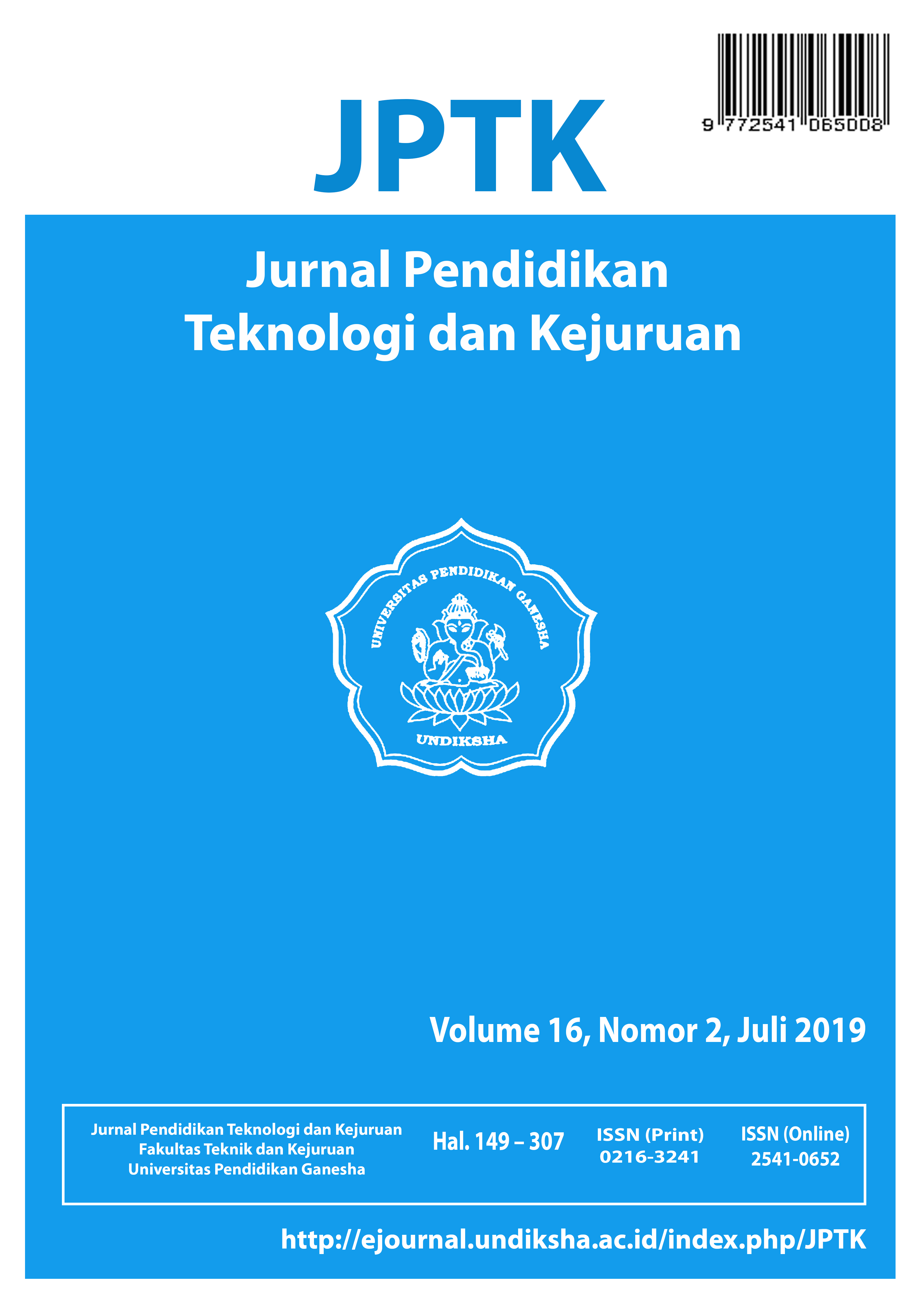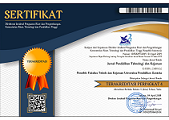IMPLEMENTASI LENSES THEORY DALAM PEMBUATAN GAME “KISAH PANJI SAKTI” BERBASIS MOBILE
DOI:
https://doi.org/10.23887/jptk-undiksha.v16i2.18313Abstract
Penelitian ini bertujuan untuk: (1) Untuk Pengembangan Lensa Teori Dalam Pembuatan Game “Kisah Panji Sakti” Berbasis Mobile. (2) Untuk mengetahui respon masyarakat terhadap Implementasi Lensa Teori Dalam Pembuatan Game "Kisah Panji Sakti" Berbasis Mobile. Metode penelitian yang digunakan adalah penelitian dan pengembangan. Permainan “Kisah Panji Sakti” Berbasis Mobile ini dikembangkan menggunakan model GDLC.Subjek penelitian adalah generasi muda rentang umur 12 hingga 35 tahun dengan menggunakan angket. Data yang dikumpulkan di sini. Data dikumpulkan dengan cara uji blakbox, uji ahli media, uji respon pengguna. Analisis data dalam penilitian ini berdasarkan buku The Art Of Game Design_A Book Of Lenses [1]. Hasil penelitian ini adalah aplikasi diimplementasikan menggunakan bahasa pemrograman C # dengan editor Unity . Seluruh fitur yang ada di Game “Kisah Panji Sakti” Berbasis Mobile ini sudah berjalan dengan baik . Respon pengguna terhadap Game “Kisah Panji Sakti” Berbasis Mobile masuk dalam rentangan sangat baik.
Downloads
Published
Issue
Section
License
Authors who publish with the JPTK agree to the following terms:- Authors retain copyright and grant the journal the right of first publication with the work simultaneously licensed under a Creative Commons Attribution License (CC BY-SA 4.0) that allows others to share the work with an acknowledgment of the work's authorship and initial publication in this journal
- Authors are able to enter into separate, additional contractual arrangements for the non-exclusive distribution of the journal's published version of the work (e.g., post it to an institutional repository or publish it in a book), with an acknowledgment of its initial publication in this journal.
- Authors are permitted and encouraged to post their work online (e.g., in institutional repositories or on their website) prior to and during the submission process, as it can lead to productive exchanges, as well as earlier and greater citation of published work. (See The Effect of Open Access)












